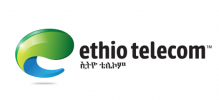Ethio Telecom, the state monopoly telecom service provider in Ethiopia is set to be among the first state enterprises set for partial privatization.
Including Ethio Telecom, the government has selected four enterprises for partial privatization, with Ethio Telecom getting first in line for initial privatization, according to Haji Ibsa, Public Relation Director at the Ministry of Finance of Ethiopia.
He told reporters that the government has started preparations to privatize mega public enterprises fully or partially after decision to embark on privatization was announced last June.
As a result, the four public enterprises that are selected to be partially privatized are Ethio Telecom, Ethiopian Shipping and Logistics Services Enterprise, Ethiopian Airlines and power generation projects, with the government maintaining a majority stake.
A proclamation for the privatization process and road-map on the future administrative system of the partially or fully privatized enterprises has been enacted and the draft proclamation is sent to the House of People’s Representatives for final approval after it is evaluated by the council of ministers, according to Haji.
The Director also noted that the privatization process needs researching the nature, current status, and total business and physical capital of the enterprises.
To get experience on the process, Ethio Telecom is selected to be initially [partially] privatized. And a technical committee has been established to facilitate the process in addition to the Macro Economic Affairs Council. Internationally experienced experts are also participating on the process, he noted.
Burden
Haji indicated that in relation to proper implementation of government budget on public projects, the government has held researches on 1000 projects administered by 102 offices. The finding indicated that the projects have delayed from two to seven years, and the main problem is lack of project profile.
Due to the delay, the country has lost 43.1 billion birr (about $1.528 billion) in cost overrun, the Director noted.
To solve the problem, the Ministry is establishing a general director within the Ministry to control government projects financial activities. In relation to government debt, Haji said that the country’s debt risk became high since December, although it was low up to mid 2015.
Heavy debt
Currently the country’s external debt has reached $26.7 billion. According to the Director, the government has planned to pay up 22.5 billion birr (about $800 million) in this fiscal year, while 9.6 billion birr (about $340 million) has already been paid up last December.
Currently, the government has totally stopped commercial loan, and is giving priority to concessional loan.
Haji further stated that in addition to the privatization process, the government has put an action plan to hold serious reform in a bid to strengthen the financial and total capital of the public enterprises handed by the government until they get privatized.
Haji also noted that the country has earned $977.6 million from export trade during the past five months of this fiscal year, which shows $99.5 million decrease from last year’s performance.
Haji noted that the export quantity of the country was low due to many factors. “Even the main export items of the country decreased in volume and foreign currency earning, although textile, leather and leather products, Khat and flower show some increment.”
He added that the decrease; which has been continually witnessed for the last seven years, came due to several reasons, mainly past security problems in some parts of the country.
As a short term solution, the government is thinking to improve the export trade by giving due attention to increase export of agricultural products since the Meher season is upon us, and also by increasing the quantity and quality of products coming out of the industrial parks.
“For the long run, the plan is to solve the major obstacles of export trade by mainly focusing on exporting value added products.”
